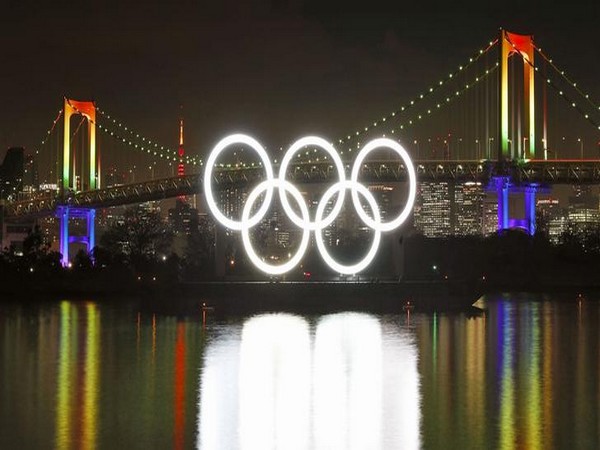Olympics-Japan to ease state of emergency, focus on Games spectators
Japan said on Thursday it will ease emergency coronavirus curbs in nine prefectures including Tokyo while keeping some measures, including limiting spectator numbers at big events, amid fears that next month's Olympics could trigger new infections. Media reported that the government was considering allowing up to 10,000 spectators in stadiums during the Games, in line with a plan endorsed by health experts https://www.reuters.com/lifestyle/sports/japan-considering-limited-domestic-spectators-olympics-media-2021-06-15 on Wednesday for events.

- Country:
- Japan
Japan said on Thursday it will ease emergency coronavirus curbs in nine prefectures including Tokyo while keeping some measures, including limiting spectator numbers at big events, amid fears that next month's Olympics could trigger new infections.
Media reported that the government was considering allowing up to 10,000 spectators in stadiums during the Games, in line with a plan endorsed by health experts https://www.reuters.com/lifestyle/sports/japan-considering-limited-domestic-spectators-olympics-media-2021-06-15 on Wednesday for events. Prime Minister Yoshihide Suga announced that authorities were lifting a state of emergency for Tokyo and eight other places but would maintain "quasi-emergency" measures in seven prefectures including Tokyo. The state of emergency had been set to expire on Sunday.
Polls have shown most Japanese remain wary about the possibility that the Games will spread coronavirus infections, particularly as vaccination rates are still lower than in other wealthy countries. The seven prefectures would keep the lower level restrictions until July 11 to prevent a rebound in coronavirus infections.
But with the pace of decline in new infections in Tokyo slowing in recent days, some experts warned of a likely rebound and stressed the need to respond quickly through further curbs or even the reinstatement of a state of emergency in the capital, Economy Minister Yasutoshi Nishimura said earlier. The Games, postponed last year, are due to start on July 23.
Asked whether the government would ask the International Olympic Committee (IOC) to cancel or postpone the Games even after they have started if there was a threat to public health and lives, Nishimura said: "The IOC has the final say." "Our top priority is to protect life and health. We will do our utmost to control infection and secure hospital beds."
THE WISDOM OF CROWDS Having barred foreign spectators, Japan is due to decide this month on whether to allow domestic spectators at the Games and looks likely to keep some restrictions on crowd numbers.
Under the "quasi-emergency" measures, just like under a state of emergency, spectators at major events are limited to 5,000 or half of a venue's capacity, whichever is smaller. Health experts including top medical adviser Shigeru Omi on Wednesday agreed the number of spectators at venues could be raised to 10,000, but only in areas where the "quasi-emergency" had been lifted.
The Mainichi newspaper and other media reported the government was aiming to allow spectators into the Games, with the 10,000 cap. A decision on the maximum number of spectators for the Olympics is due by the end of the month. Omi previously called on the government to better explain to the public how it expects to prevent infections while hosting the Games.
Public broadcaster NHK said on Thursday that Omi and other health experts had compiled proposals for the Games, stating that banning spectators would be the least risky approach. If spectators are to be allowed, the experts proposed there should be more restrictions than those applied to other large-scale events, NHK reported.
Chief Cabinet Secretary Katsunobu Kato declined to comment on the reported proposals. Omi will announce the proposals on Friday, according to the Kyodo news agency.
Meanwhile, Kato said Japan aimed to introduce vaccine passports by around late July in an effort to ease travel restrictions.
(This story has not been edited by Devdiscourse staff and is auto-generated from a syndicated feed.)
ALSO READ
Biden and Japan's Kishida forge new partnership, eyeing China and Russia
Joe Biden hosts Japan's PM at White House, in strong message to China over policies in Indo-Pacific
Japanese Prime Minister Fumio Kishida to speak to Congress as doubts linger over American global leadership
US, Japan signal support for Texas high-speed rail plan
EXPLAINER-Why is Japan seeking a summit with nuclear-armed North Korea?










